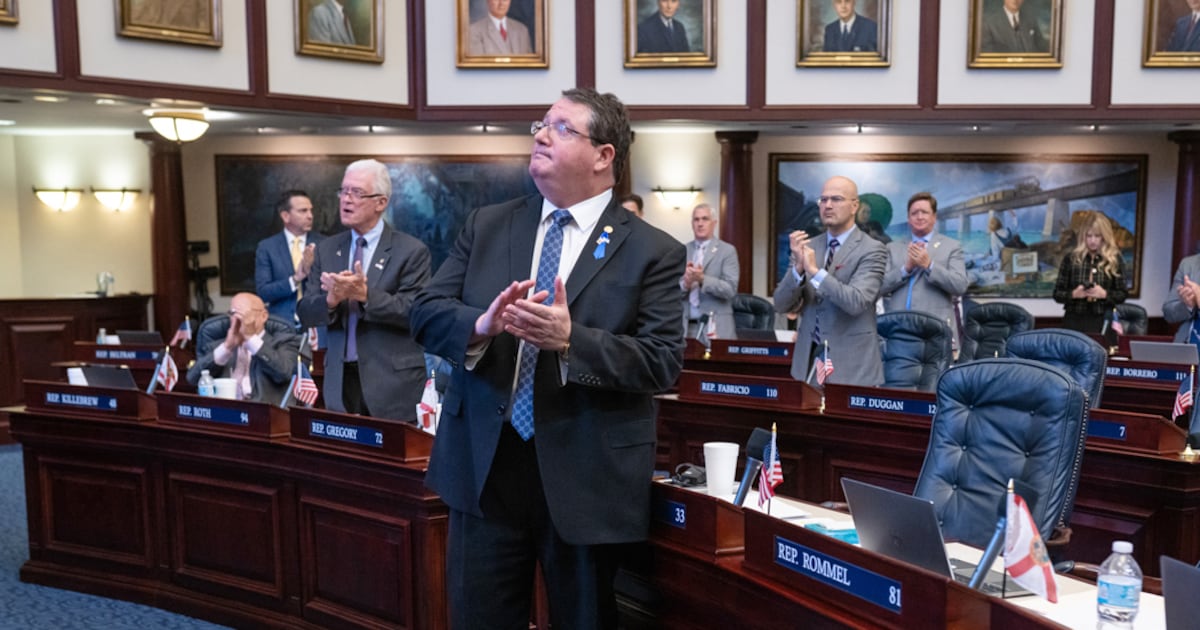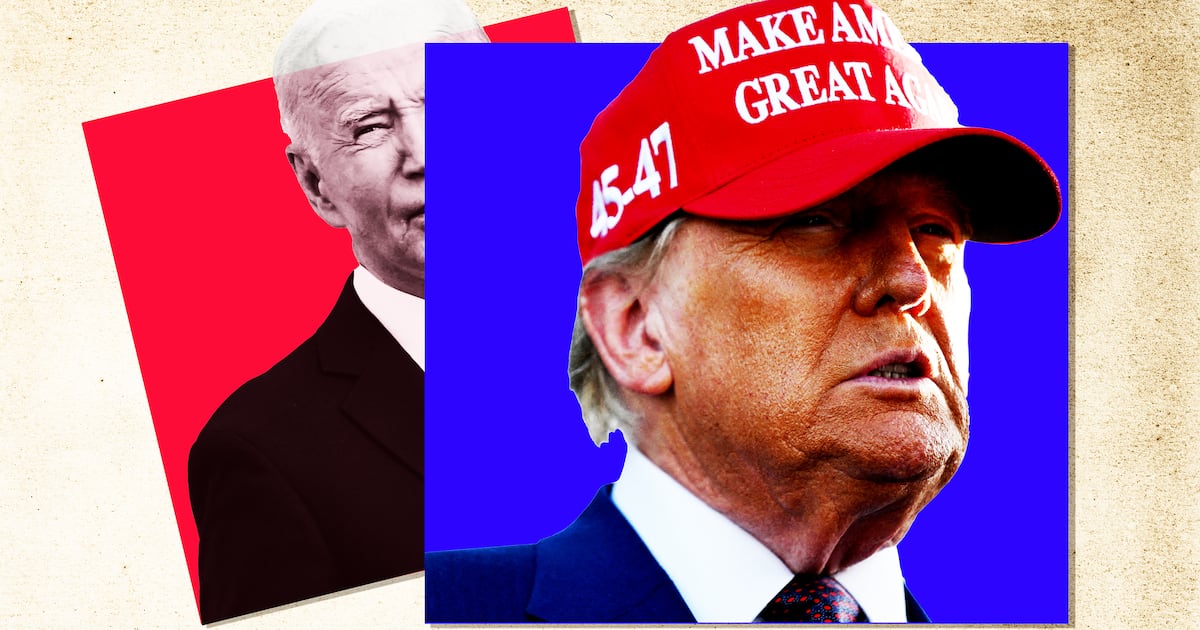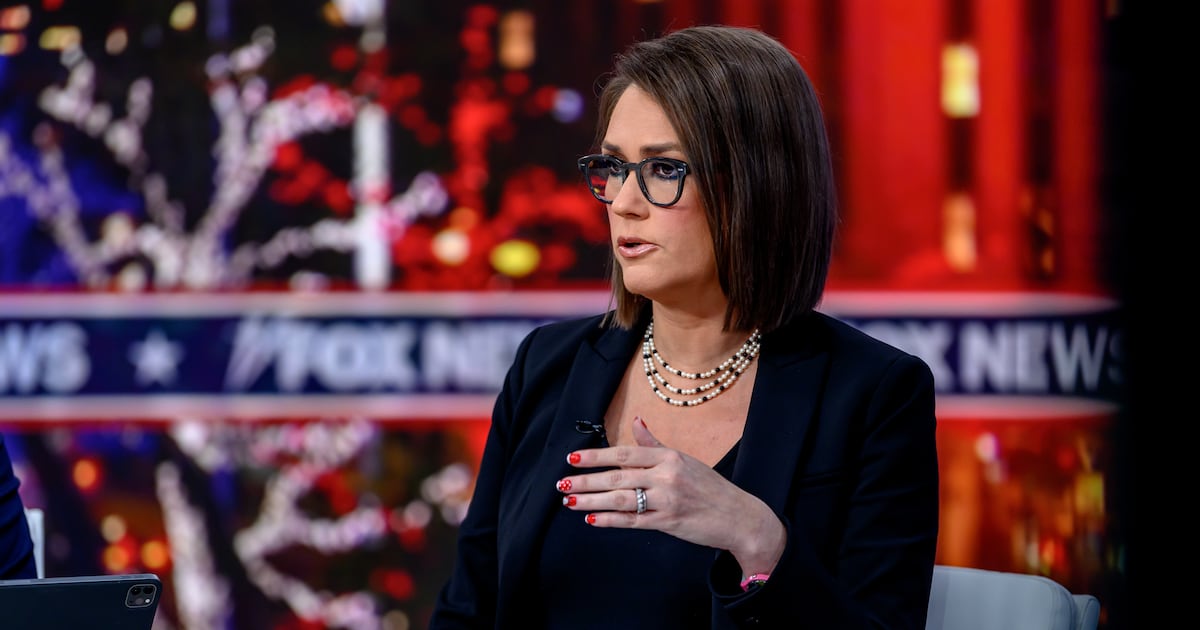It should come as no surprise that former Indiana basketball coach Bobby Knight wants to Make America Great Again.
Knight’s authoritarian brand of coaching—chair-throwing, cuss-spewing, all delivered through a face constantly discovering new shades of red—matches up perfectly with the protestor-bashing, wall-building, anti-woman and anti-immigrant campaign Trump has run thus far. As the critical Indiana primary approaches, Trump has added another pair of legendary Indiana coaches to his roster of endorsers, with Notre Dame’s Lou Holtz and Purdue’s Gene Keady rounding out his triumvirate.
The trio has expressed varying reasons for their support of Trump. Holtz told The Washington Post his decision was informed primarily by his enjoyment of Trump’s hotels and golf courses. “He does nothing but go first class in everything, he wants this country to be first class as well,” he said.
ADVERTISEMENT
Knight commends Trump’s can-do spirit. As he told TIME, “He’s pretty good at looking at things and deciding what has to be done, and then getting it done.”
Keady, on the other hand, loves Trump’s foreign policy. “I heard his foreign policy speech the other day. I just said he won himself the presidency,” he told the Washington Examiner.
These men who spent their lives meticulously shaping their teams through hard-line discipline see that same spirit when Trump threatens Black Lives Matters protestors and promises crackdowns on illegal immigrants from Mexico. Coaches see Trump expressing the same kind of my-way-or-the-highway sentiments they have used on their teams for ages.
Coaches see themselves as molding boys into men through hard work and discipline, and thus they can see themselves in Trump’s promises to Make America Great Again through a return to the values of bootstraps conservatism, a submission to authority and hard work.
This hook is proving particularly effective in 2016 as conservative figures see their authority under attack from all angles. In college sports, the successful protest by the Missouri football players this past fall represents the most prominent such attack on traditional values. Instead of seeing young men who banded together to stand up for their rights, conservative commentators like the ones at Red State saw the protest as the work of “cowardly liberal lazy douchebags.”
Powerful figures like police unions saw public statements by athletes in support of the victims of police brutality not as powerful actions in support of their community but as “pathetic” and requiring apology.
Trump himself goes even farther, like when he described a Black Lives Matter protester at one of his rallies as “absolutely disgusting” and saying, “Maybe he should have been roughed up.“
The response from Trump and his ilk to the Black Lives Matter movement is particularly relevant to understanding why coaches have rushed to Trump’s corner. Look back to the late 1960s when the Civil Rights Movement kicked off protests across college campuses nationwide. These protests spilled over into athletics, where black athletes began to stand up to their white coaches in large numbers for the first time in the history of college sports.
One of the biggest protests happened at Oregon State University, where head football coach Dee Andros attempted to place a ban on facial hair, a policy directed at a number of Black athletes who were growing beards and mustaches.
“I’m not just fighting hair on the face,” Andros told Sports Illustrated in 1969. “I’m fighting for a principle of education—the right to run my department. If I thought it would end with a beard or a mustache, I wouldn’t be so bullheaded. But if they beat you on one issue, they’ll keep right on.”
Andros added that he couldn’t “abandon the concepts of training, discipline, team unity and morale” and that athletes must have the “willingness” to subordinate himself to a cause greater than himself. Author John Underwood wrote that Andros was aware his stance might be seen as undemocratic, but “he wasn’t trying to run a democracy, he was trying to run an athletic program.”
Men like Andros, Knight, Keady and Holtz profited their entire careers from unpaid labor, much of it the labor of black athletes. College coaches, of course, don’t see it this way. They think athletes should submit and be grateful for the opportunities they are given even as they lack the money necessary to pay for food, all while their coaches rake in multimillion dollar salaries. Now, they see their positions and the values they stood for threatened by what they perceive as a dissolution of the rules that held society together.
In Trump, they see somebody else willing to stand up and tell people to remember their place.
Trump knows this desire for strength from authority figures all too well. In his autobiography The Art of the Deal, Trump writes about his baseball coach at New York Military Academy, Theodore Dobias. Trump presents him as the stereotypical image of a no-nonsense military man, “a former drill sergeant in the marines, and physically he was very tough and very rough,” and how he learned to manipulate this man’s hardcore attitude.
“I figured out what it would take to get Dobias on my side. In a way, I finessed him. It helped that I was a good athlete, since he was the baseball coach and I was the captain of the team. But I also learned how to play him.
What I did, basically, was to convey that I respected his authority, but that he didn’t intimidate me. It was a delicate balance. Like so many strong guys, Dobias had a tendency to go for the jugular if he smelled weakness. On the other hand, if he sensed strength but you didn’t try to undermine him, he treated you like a man. From the time I figured that out—and it was more an instinct than a conscious thought—we got along great.”
Trump’s actual policy positions were almost meaningless when it came to attaining the respect and support of Knight, Keady and Holtz. They all see different things in Trump, whether it’s business sense or brutal toughness or classiness. The common thread is Trump’s projection of authority and his total disdain for weakness in any form. Whether or not there is any substance to Trump’s displays of strength is irrelevant. He has pulled the same finesse on them as he claims to have pulled on Drill Sergeant Dobias back at New York Military Academy. And it just might win him the Republican nomination for President.






